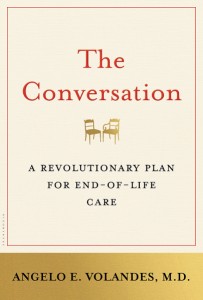 National surveys say 80 percent of people want to “die in the comfort of their home,” but in Hawai‘i, only 22 percent of families use hospice services. Hawaii also ranks high (number 2 in the U.S.) in emergency room deaths. Are we getting what we want?
National surveys say 80 percent of people want to “die in the comfort of their home,” but in Hawai‘i, only 22 percent of families use hospice services. Hawaii also ranks high (number 2 in the U.S.) in emergency room deaths. Are we getting what we want?
Dr. Angelo Volandes from Harvard Medical School recently spoke to health care professionals in Hawai‘i about ways to find out what terminal patients really want. “We don’t live in a patient-centered health care system,” says Volandes.“ As patients, we need to take control and become the center of our care team’s attention.”
Under-utilization of hospice services is a national problem, but worse in Hawai‘i. According to a 2007 study of over four thousand terminal patients, those on hospice lived longer than patients in hospitals who opted for complex procedures to “fight for longer life.”* Obviously, being kept alive in an intensive care unit is not the same as recovering enough to go home — but by the time families figure out their loved one is not coming home, it’s too late. For ten years Dr. Volandes taught doctors how to find out their patients’ end-of-life intentions. Now he is helping educate families to start the conversation early, and to tell their doctors — if they want to die comfortably at home.
Dr. Volandes’ new book, “The Conversation,” tracks seven patients at the end of life. He says that if patients knew that surgical procedures and resuscitation at end of life often do little good, they might turn them down. Such procedures may even increase their loved one’s pain and decrease the comfort of their last days.
HMSA (Hawai‘i Medical Service Association), Dr. Volandes, and Dr. Rae Seitz from John A. Burns Medical School collaborated to make a series of videos on advanced care planning. Videos are available to Hawai‘i hospitals and health care providers in all local languages so they can open the “Conversation” about end of life care and clearly plan for the patient’s true wishes and intentions.
Dr. Volandes urges elders to take the first step — have a conversation with your loved ones — to be sure everyone in the family knows what you want. If you want to die in familiar surroundings at home, pick the person who will honor your wishes when you are no longer able to make your own decisions. For further information contact your health care provider. “The Conversation” is available in bookstores and on Amazon.com.
Theconversationbook.org
* Journal of Pain and Symptom Management
Vol. 33 No. 3 March 2007, pp.238-245


Leave a Reply